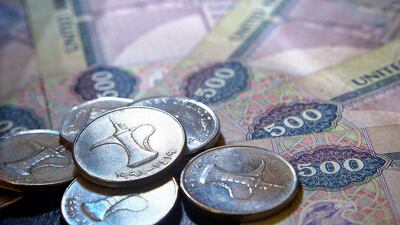Should the United Arab Emirates establish a personal income tax? The International Monetary Fund certainly seems to think so. At a meeting of the Arab Fiscal Forum in February, the IMF’s managing director, Christine Lagarde, said that the Gulf states should get ready to implement new taxes, including personal income taxes.
Another IMF report suggests that these personal income taxes should be progressive, meaning the more you earn the higher the rate of tax you pay. The IMF report also emphasises that a progressive income tax would be “fair”, though without really saying why it would be fair.
It’s not hard to see why new taxes are on the agenda right now. Governments in Arabian Gulf states have spending priorities for development, and in what may be an era of prolonged low oil prices the revenues for these projects will have to come from somewhere.
The next question is whether new revenue should come primarily from value-added taxes (VATs) on consumption, or whether it should also come from a corporate income tax or even a personal income tax. Recent UAE government declarations suggest a VAT will be established soon and a corporate income tax might be in the works – but a personal income tax is not yet planned.
The mix between these three taxes could affect economic growth and the distribution of resources in UAE society. With many high earners who are also highly mobile between countries, high tax rates could prove to be self-defeating. Yet, if implemented, a UAE income tax could also shift the burden of government finance towards the better off.
In our recent book, Taxing the Rich, we investigate the evolution of income taxes and other taxes levied on the wealthy in 20 countries, mostly in Europe and North America, over the past two centuries. We found that governments don't just implement progressive personal income taxes because they need the money.
Nor do governments establish progressive income taxes just because inequality is high or rising. Governments instead implement progressive tax policies when people think it is fair for them to do so.
__________
Talk on taxes
■ You can hear the co-author of Taxing the Rich at a lecture in Abu Dhabi on Sunday night. David Stasavage, the Julius Silver professor of politics at New York University and an affiliated faculty member of NYUAD, speaks on the topic "When are taxes fair?" at 7pm on Sunday at the NYUAD conference centre.
__________
So, when might people in the UAE think it is fair to establish a progressive income tax? In our book we emphasise that fairness in taxation is a contested notion and there have been three main fairness arguments made for and against progressive income taxation.
Opponents of progressive income taxation emphasise equal treatment and the inherent fairness of all paying the same rate. This is a particularly powerful argument in a democracy, or in any other context where there is a norm of treating people equally.
Supporters of progressive income taxation suggest instead that there should be equality based on ability to pay. Since the rich have more, they should be able to pay a higher rate of tax.
Finally, sometimes supporters of progressive taxation have been able to also take a different tack. They have been able to make compensatory arguments. These suggest that progressive income taxation is necessary to counterbalance sacrifices that the state has imposed on those who are less well off. Counterbalancing in this way restores equal treatment.
Although the most politically powerful compensatory arguments, which justified very high top rates, were made during mass mobilisation for the two world wars, there are other compensatory arguments that can also come into to play for establishing an income tax with more moderate rates. It’s just possible these will influence future debates about an income tax in the UAE.
To see the historical precedent for these other compensatory arguments we need to look back to tax debates in European societies before 1914. During the 19th century most European governments relied on indirect taxes on consumption to fund spending. These indirect taxes were the ancestors of the value-added tax that the UAE is likely to soon implement.
Indirect taxes in Europe proved to be an effective way of funding government spending, but they had another feature that some found undesirable. As long as the poor and middle class spent more of their income than did the wealthy, then indirect taxes had a regressive incidence.
Given the regressive incidence of indirect taxes, some politicians made a compensatory argument – establish an income tax, albeit with low top rates, the burden of which would be borne primarily by the better off. The idea in a nutshell was that two wrongs might make a right.
Britain’s prime minister Robert Peel made a compensatory argument in 1842 during parliamentary debates over reintroducing an income tax. There is good evidence that compensatory arguments also helped lead to the establishment of progressive income taxes in other countries.
We certainly shouldn’t assume that what happened in Britain will necessarily happen in the UAE. These are two different countries with very different political systems. Still, the potential parallel is striking. A government in need of revenue may find it easiest at first to do this through an indirect tax such as a VAT. This then makes it possible for some to argue for establishing an income tax on compensatory grounds. It’s up to UAE society to determine whether this argument will actually be made.
Kenneth Scheve and David Stasavage are American political scientists, the former based at Stanford University and the latter at New York University.
business@thenational.ae
Follow The National's Business section on Twitter

